Get a Free SSL Certificate and Secure Your Site Now

Free Let's Encrypt SSL Certificates With All Our Plans

Differences Between Free and Paid SSL Certificates
We renew all certificates automatically and free of charge for more convenience. Therefore, your email address can be obtained easily and added to spam lists. Here at Hosting Stafford we ensure your data is hidden from sites such as WHOIS. That way, advertisers won’t be able to access your information, and you can use your top-level domain in peace.
Why Do You Need an SSL/TLS Certificate?
Secure Your Website


Comply With PCI DSS Standards
Build Trust


Increase Your Ranking on Google
How SSL Certificates Work



Free SSL & Paid SSL Certificate FAQs



SSL (Secure Sockets Layer) or TLS (Transport Layer Security) is a security protocol that encrypts communication between a website and a web browser. It prevents unauthorized parties from accessing or seeing the data exchanged between a site and its visitors.
SSL certificates are issued by certificate authorities (CA) to websites to authenticate their identity, letting browsers know that the website is secure.
In addition to the security benefits, SSL certificates improve brand trust and SEO. That’s because they signal great website safety that users and search engines expect.
To see if a website has an SSL certificate, check if the browser displays a padlock icon next to the URL and if there’s https:// before the domain name.
Based on their domain validation level, there are three types of SSL/TLS certificates.
For domain-validated certificates (DV), the certificate authority (CA) will only ask you to verify the domain ownership via email, phone, or DNS record before issuing the certificate.
Organization-validated certificates (OV) have a medium level of validation. Besides domain validation, the CA usually checks documentation that verifies the organization’s name, contact information, and legal status.
Finally, the extended validation certificates (EV) offer the highest level of verification, with the CA conducting extensive background checks to verify the registrant’s location, legal status, and order details.
All types of SSL/TLS protection provide the same encryption level. However, some sites may need certificates with higher levels of verification to offer better proof of legitimacy or to obtain multiple domains at once.
Generally, a new SSL certificate will become active in just a few minutes – you just need to install it on the website.
The certificate will be installed automatically on any new domains you create. If you have questions about installing our free SSL certificates, please contact our 24/7 Customer Success team.
To manually renew an SSL/TLS certificate, you must generate a new certificate signing request (CSR), fill out the form, and install the latest version.
You don’t need to do it manually, as we offer the automatic renewal feature.
Yes, it does. Website security is an important ranking factor for Google.
Your website has a much higher chance of appearing at the top of the search results if it has SSL enabled. You are likely to notice the difference relatively quickly.
Yes, you can. As one of the leading hosting providers, we have streamlined the process of installing SSL via the SSL certificate management options available on our custom control panel.
Simply follow the easy steps in this custom SSL certificate installation guide and get the certificate running in no time.
